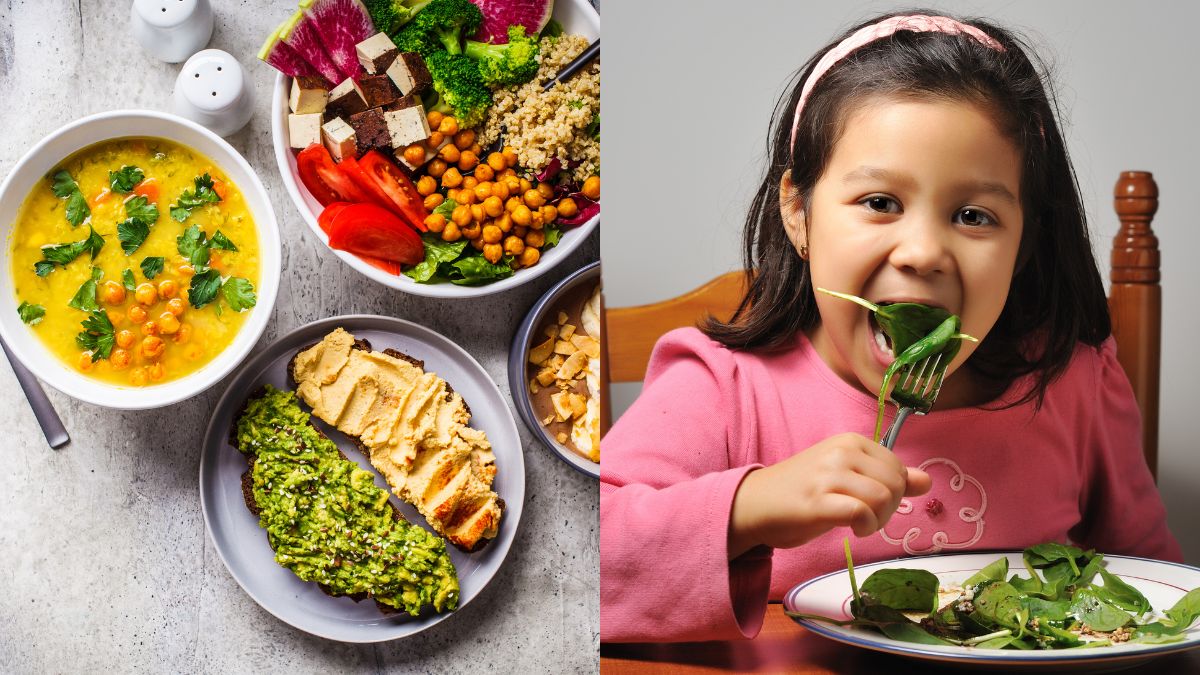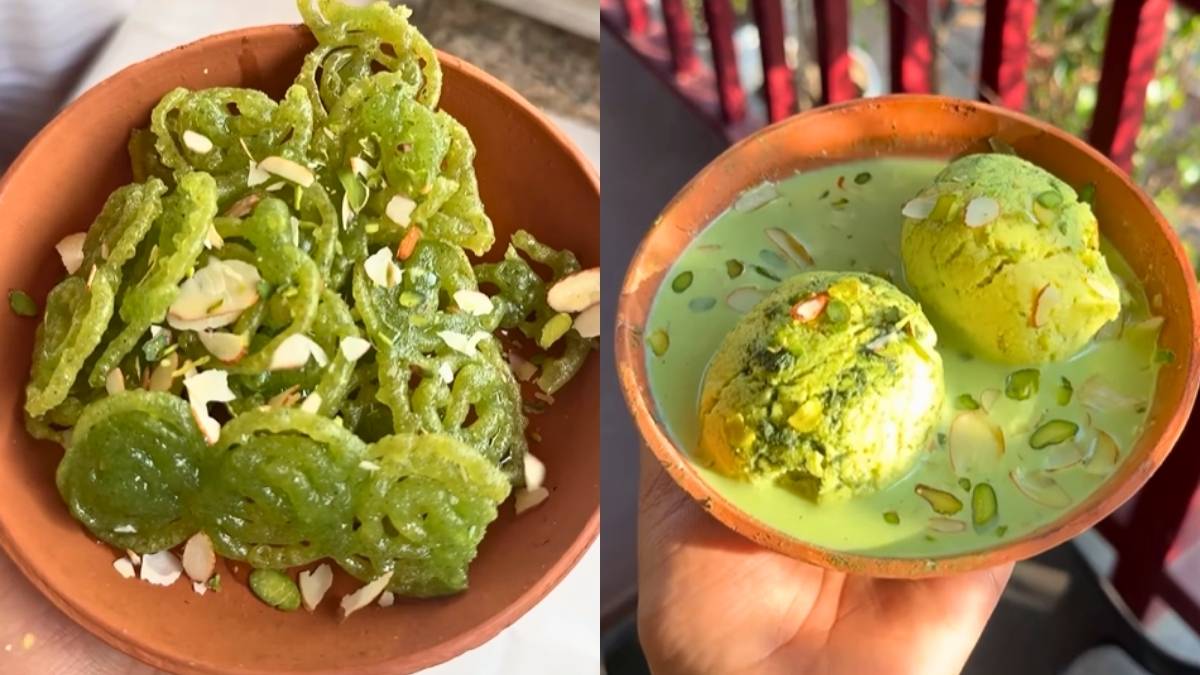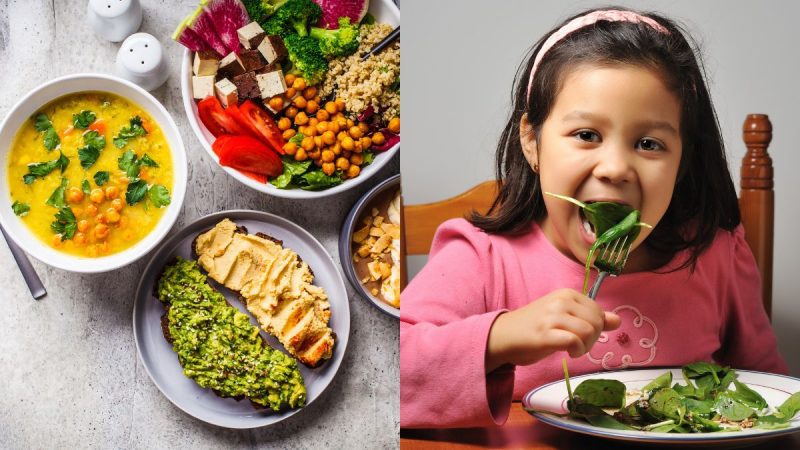In just a decade, the number of vegans in India has increased. This surge appears to be mostly driven by young people, with over half of all vegans aged 15 to 34. Some of these folks will opt to raise their children similarly. As more families adopt plant-based lifestyles for their children, the movement (vegan parenting) expands beyond nutrition to include a dedication to consciousness in various areas.
Why Do Families Choose Vegan Parenting?

Families choose vegan parenting for a variety of reasons, including ethical considerations as well as health and environmental issues. “Ethical and environmental considerations drive vegan parenting,” states the founder of vegan food brand, Only Earth, Kunal Mutha. “Families are increasingly aware of the environmental impact of traditional animal agriculture and the ethical implications of animal exploitation. Choosing plant-based diets aligns familial values with dietary choices, fostering a sustainable and compassionate lifestyle.”
Families are making more informed food choices as knowledge about the effects of choices grows in accessibility. “Families adopting this lifestyle often incorporate zero-waste practices into their daily routines. This approach is not just about what one consumes but also about minimising environmental impact in all aspects of life,” he adds. Parents frequently have open discussions with their children about the impact of their decisions on animals and the environment.
As more people adopt plant-based diets for health reasons, the demand for vegan food products has risen. The growing availability of vegan products in mainstream retailers has made them more accessible to a wider audience. “Supermarkets and restaurants now offer a wide range of plant-based products, from alternative milk to meat alternatives, facilitating parents in providing nutritious and appealing meals for their children,” he adds.
Also read: Ayodhya To Get World’s First Seven-Star, Vegetarian-Only Hotel; Details Inside
Does It Make Up For The Nutrition Needed?
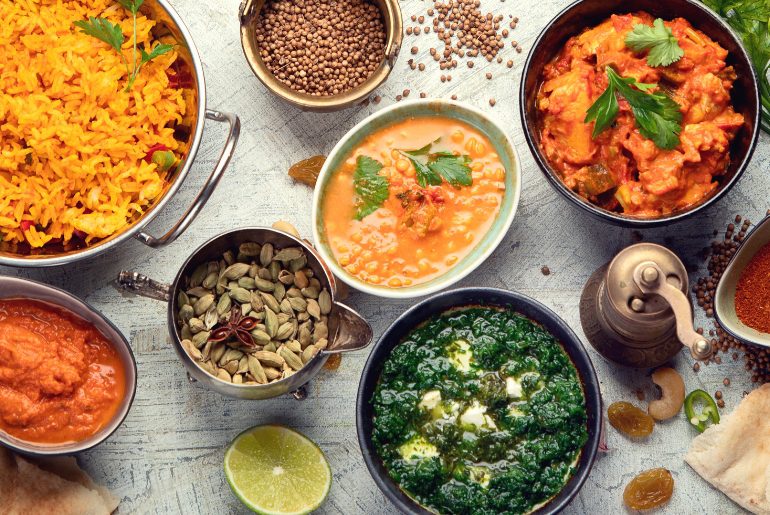
Parents may embrace a vegan lifestyle for personal health reasons and may decide to share them with their children. One major question regarding vegan parenting is whether a plant-based diet will offer all of the nutrients required for developing children. “Contrary to misconceptions, a well-planned and balanced vegan diet can provide all the necessary nutrients for a child’s growth and development,” he says. “Creating a well-rounded and balanced vegan meal plan for children involves incorporating a variety of fruits and vegetables, plant-based proteins, and addressing calcium and vitamin D needs. The availability of diverse plant-based food options ranges from alternative milk to meat substitutes. This makes meals appealing for vegan children.
Balancing a child’s desire to fit in with their peers while adhering to a vegan lifestyle could be hard. These are the alternatives that Mutha suggests –
- Calcium can be obtained from fortified plant-based milk alternatives, calcium-set tofu, dark leafy greens, and almonds.
- To address concerns about protein intake, a variety of plant-based sources, including lentils, chickpeas, tofu, and nuts, can be incorporated into a child’s diet.
- Vitamin D can be sourced from safe sun exposure, fortified plant-based milk alternatives, or supplements.
These foods provide adequate protein for growth and development, refuting the myth that vegan diets are deficient in this essential ingredient.
Holistic Living Since Young?
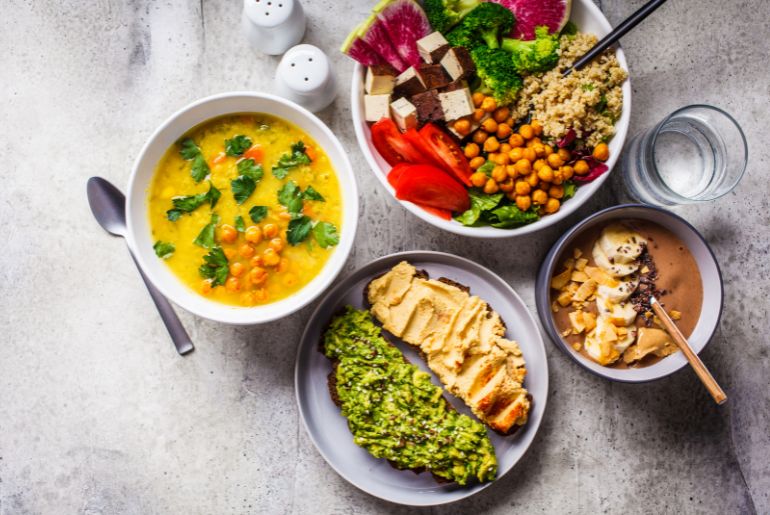
Some children raised in vegan households choose to continue living this way into adulthood. They express a strong connection to ethical principles and a desire to contribute to a more sustainable future. “Beyond the plate, vegan parenting is rooted in historical practices. It dispels the notion that veganism is a recent fad by highlighting its viability as a long-standing, nutritionally sound choice for families. Education emerges as a key aspect of successful vegan parenting,” explains Mutha.
One of the main goals of vegan parenting is to foster empathy and compassion in children from an early age. “Teaching children about the nutritional value of plant-based foods and the broader impact of their choices on health and the environment empowers them to make informed dietary and lifestyle decisions,” he adds. Vegan families frequently involve their children in ethical decision-making processes, which instils a feeling of responsibility and critical thinking. “Involving children in meal preparation fosters a connection with their food.” Moreover, vegan parenting encourages creativity in the kitchen.
In today’s time, vegan parenting represents more than just a dietary shift. This transition to veganism reflects a broader cultural shift towards more aware and sustainable consumption habits.
Cover image credits: Canva
–
For more such snackable content, interesting discoveries and the latest updates on food, travel and experiences in your city, download the Curly Tales App. Download HERE.
Good news! We are on WhatsApp! Subscribe to Curly Tales WhatsApp Channel to stay up-to-date with exclusive content and BTS. Join HERE.
First Published: January 16, 2024 5:21 PM
